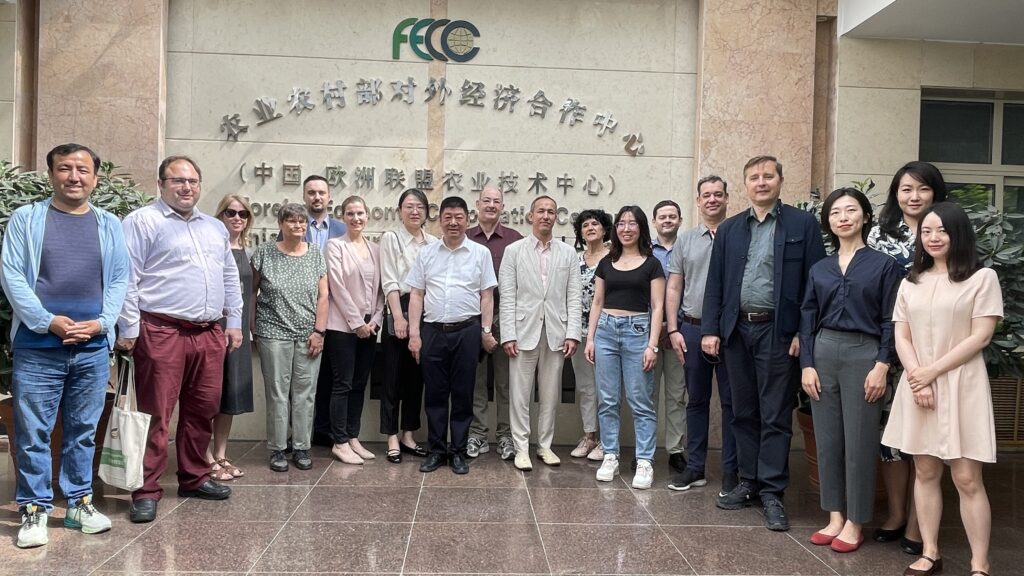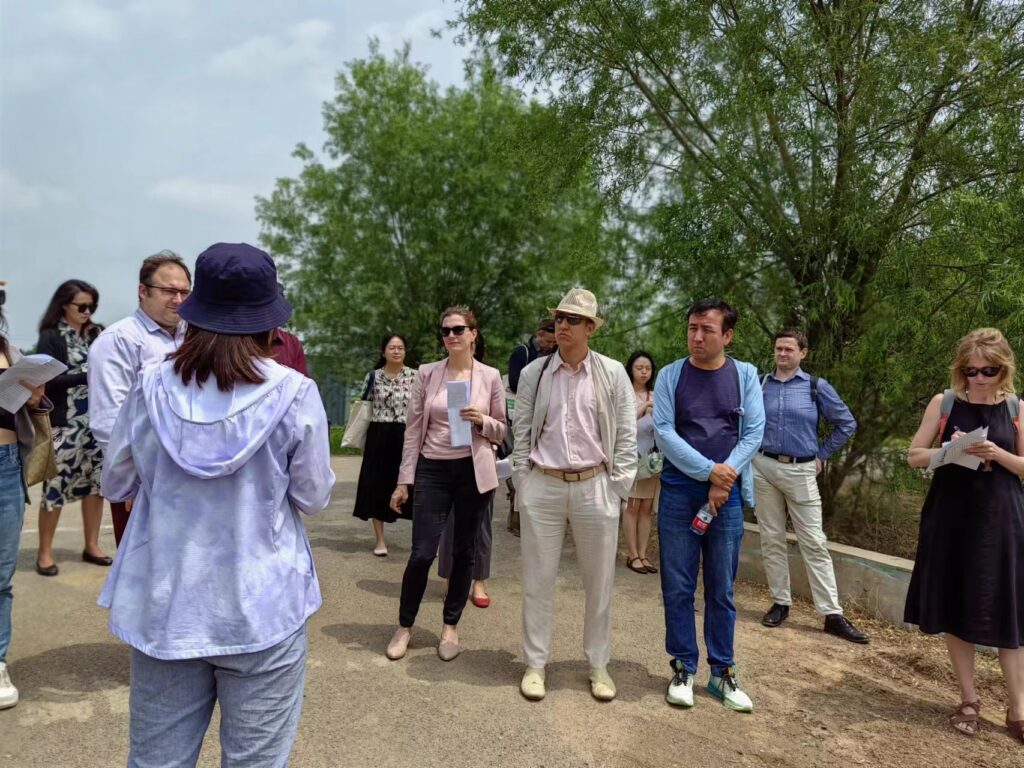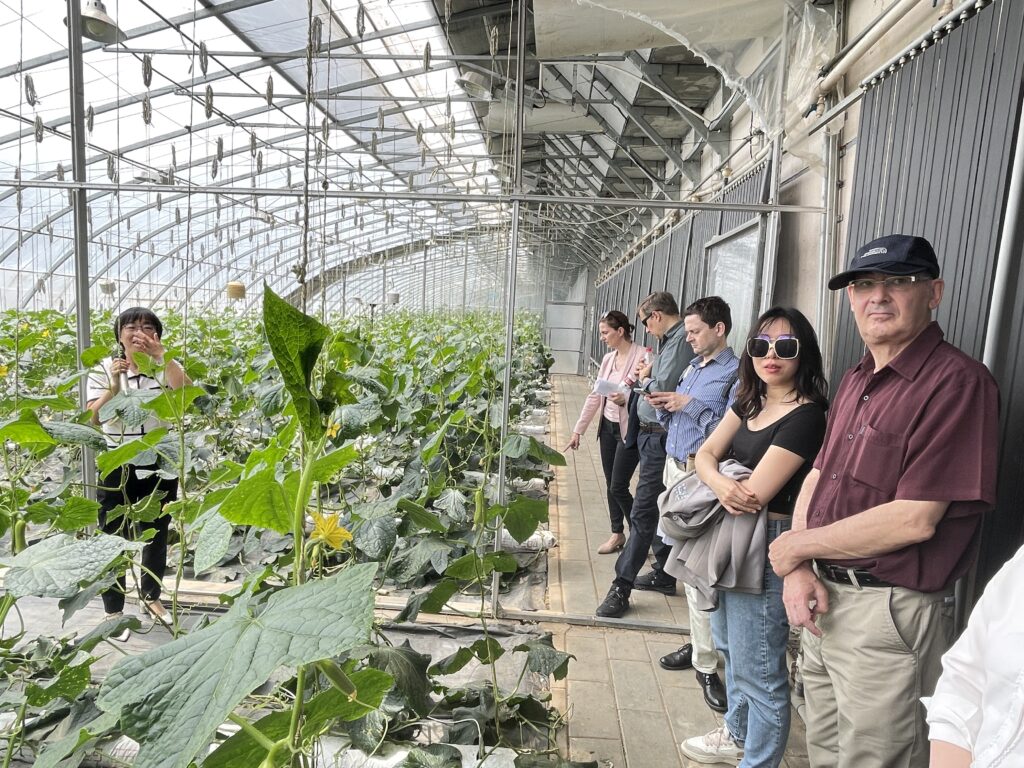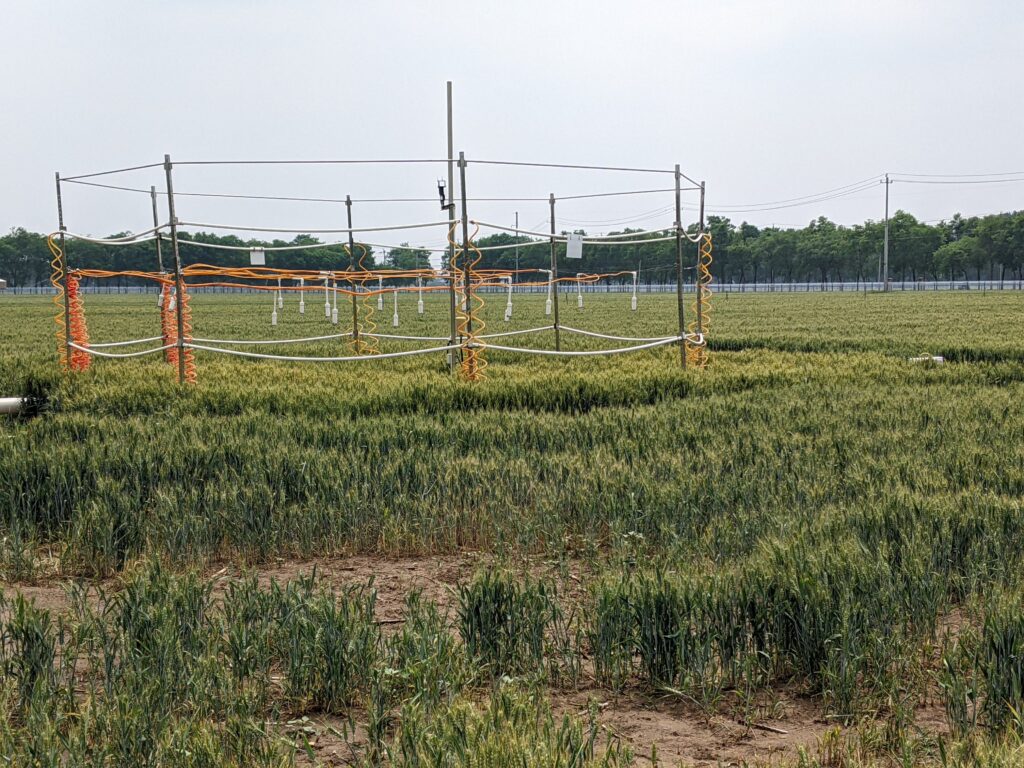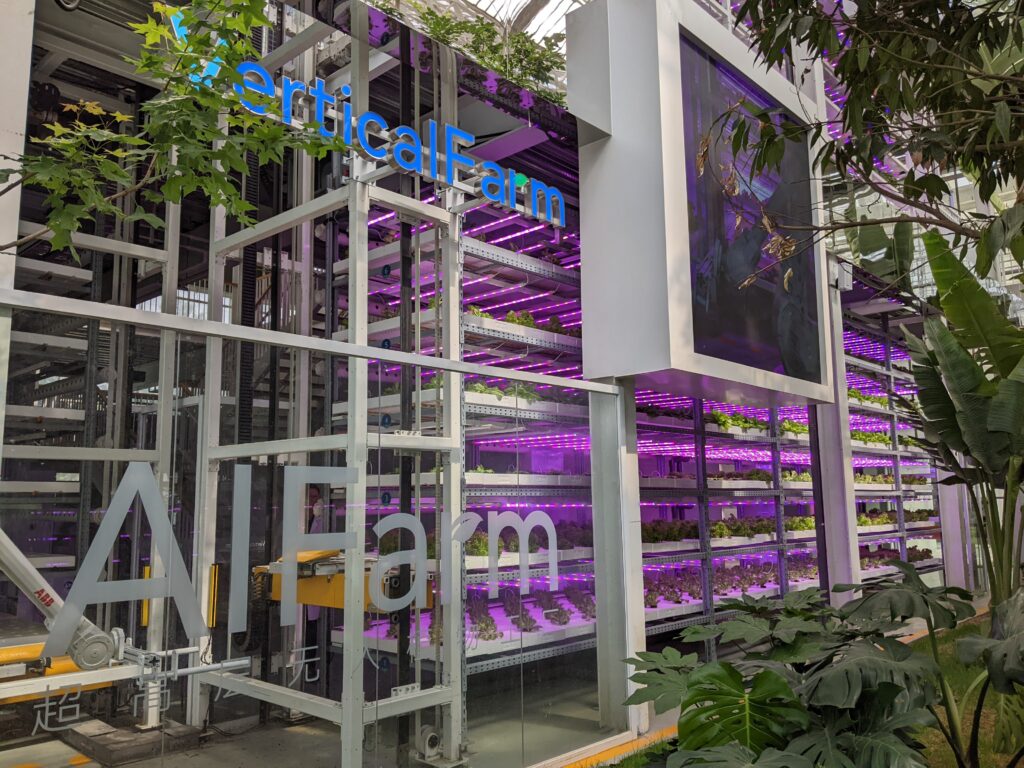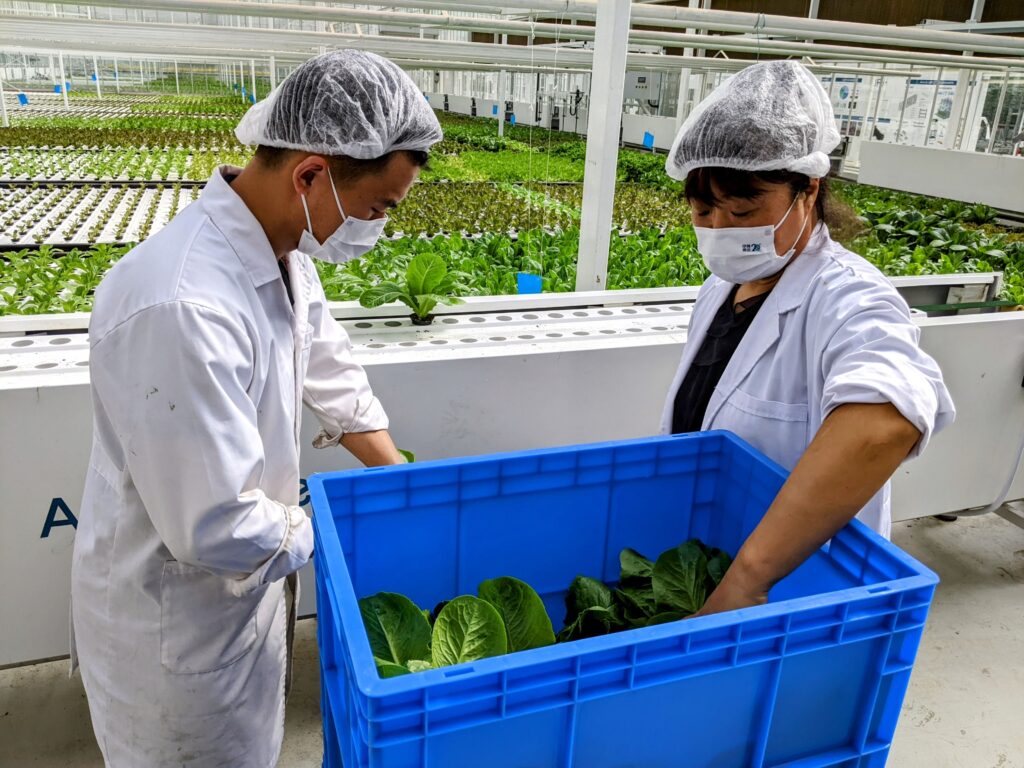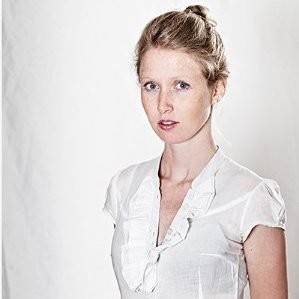On 25 May, the DCZ invited a group of EU agriculture and science counsellors to a workshop on agriculture and climate change, including a field visit to an experimental field site run by the Chinese Academy of Agricultural Sciences in Shunyi district, Beijing. The event was hosted by German agriculture counsellor Ms. Friederike DÖRFLER, the Science & Technology Platform of the DCZ, and the Department of International Cooperation of CAAS. Besides agriculture and science counsellors from nine EU countries and the EU Delegation to China, the event was attended by high-level representatives from the Institute for Environment and Sustainable Development in Agriculture (IEDA) of CAAS.
The event started with opening remarks by Ms. Dörfler, DCZ managing directors Mr. Jürgen RITTER and Mr. Geng WANG (FECC), as well as Ms. Yu QIAN, deputy director general at the Department of International Cooperation at CAAS. Afterwards, Ms. Eva STERNFELD, head of the S&T Platform of DCZ, gave an overview of how climate change is affecting agriculture in China as well as the research and policy efforts to address this issue. Ms. Sternfeld also presented the work the DCZ has been undertaken in this area, including the launch of an expert dialogue platform in 2019 for experts from China and Germany to work on joint responses to climate change in agriculture [1].
The workshop continued with a site visit and discussion at the experimental field site of IEDA in Shunyi district, Beijing, where the visitors were welcomed by Mr. Qingzhu GAO, deputy director general of IEDA. On 1,000 mu of land (approx. 67 ha), the experimental site explores the impact of soil, water, and atmospheric conditions on grain yields and quality, with a focus on winter wheat and corn production.
Researchers of IEDA presented experiments on the impacts of different tillage and crop rotation systems on grain yields and agriculture-related CO2 emissions. Other research focused on the safe return of organic waste to agricultural land and its impact on water, soils, and human health. Especially emergent contaminants in animal manure such as antibiotic-resistant genes and microplastics pose potential health risks as they can be traced in the water, soil, and food produced for human consumption, the IEDA researchers demonstrated at the experimental site.
At the Free Air CO2 Enrichment (FACE) facility, crops are subjected to higher concentrations of CO2 and artificially increased temperatures, simulating growing conditions under varying climate change scenarios. Unlike lab experiments, the FACE method constitutes a more natural way of estimating how grain yield and quality will change in the future as the CO2 concentration in the atmosphere is rising. Ms. Xue HAN of IEDA also introduced the participants to the crop phenotyping experiments currently carried out at by the FACE research team as part of an EU Horizon 2020 project focused on climate change adaption in crop production. The visit also included insights into the energy-saving principles of Chines traditional solar greenhouses equipped with active heat storage systems as well as into IEDA’s research into the design and structure of modern plant factories.
The afternoon visit to the National Agriculture Innovation Park of CAAS in Haidian district was organized by French agriculture counsellor Jo Cadilhon. At the site, the participants visited the modern plant factory and horticulture production center of AgriGarden, a company spin-off of CAAS. Together with international partners from the Netherlands, France, and other countries, AgriGarden designs and implements modern plant factories for clients all over China. By combining data analysis with the optimization of plant breeds, inputs, and production processes, the company seeks to build a high-efficiency urban farming model. The event concluded with a discussion on future cooperation opportunities in the horticulture sector.




